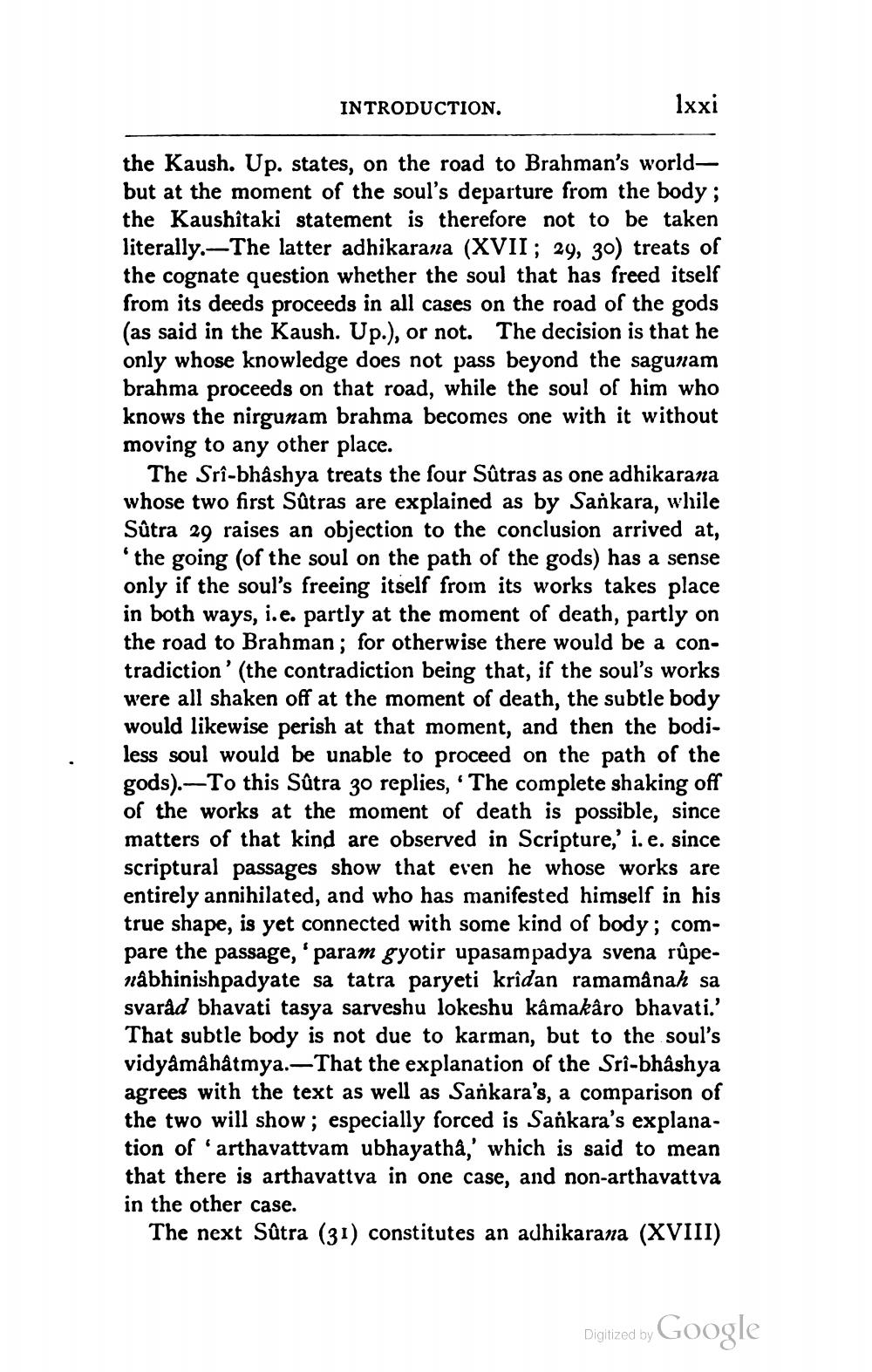________________
INTRODUCTION.
lxxi
the Kaush. Up. states, on the road to Brahman's worldbut at the moment of the soul's departure from the body; the Kaushitaki statement is therefore not to be taken literally.-The latter adhikarana (XVII; 29, 30) treats of the cognate question whether the soul that has freed itself from its deeds proceeds in all cases on the road of the gods (as said in the Kaush. Up.), or not. The decision is that he only whose knowledge does not pass beyond the sagunam brahma proceeds on that road, while the soul of him who knows the nirgunam brahma becomes one with it without moving to any other place.
The Srî-bhâshya treats the four Sûtras as one adhikarana whose two first Sûtras are explained as by Sankara, while Sûtra 29 raises an objection to the conclusion arrived at, "the going (of the soul on the path of the gods) has a sense only if the soul's freeing itself from its works takes place in both ways, i.e. partly at the moment of death, partly on the road to Brahman; for otherwise there would be a contradiction' (the contradiction being that, if the soul's works were all shaken off at the moment of death, the subtle body would likewise perish at that moment, and then the bodiless soul would be unable to proceed on the path of the gods).–To this Sûtra 30 replies, 'The complete shaking off of the works at the moment of death is possible, since matters of that kind are observed in Scripture,' i.e. since scriptural passages show that even he whose works are entirely annihilated, and who has manifested himself in his true shape, is yet connected with some kind of body; compare the passage, 'param gyotir upasampadya svena rûpenâbhinishpadyate sa tatra paryeti krîdan ramamânah sa svarad bhavati tasya sarveshu lokeshu kâmakaro bhavati.' That subtle body is not due to karman, but to the soul's vidyamahatmya.—That the explanation of the Sri-bhashya agrees with the text as well as Sankara's, a comparison of the two will show; especially forced is Sankara's explanation of arthavattvam ubhayatha,' which is said to mean that there is arthavattva in one case, and non-arthavattva in the other case.
The next Sûtra (31) constitutes an adhikarana (XVIII)
Digitized by Google




